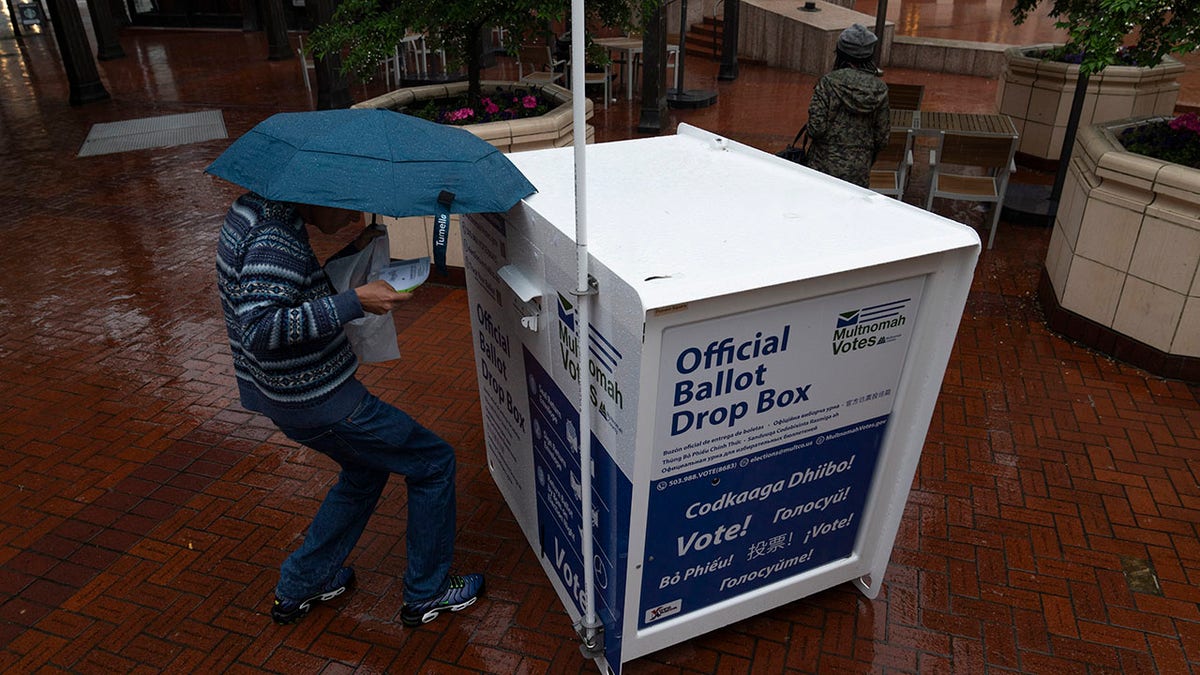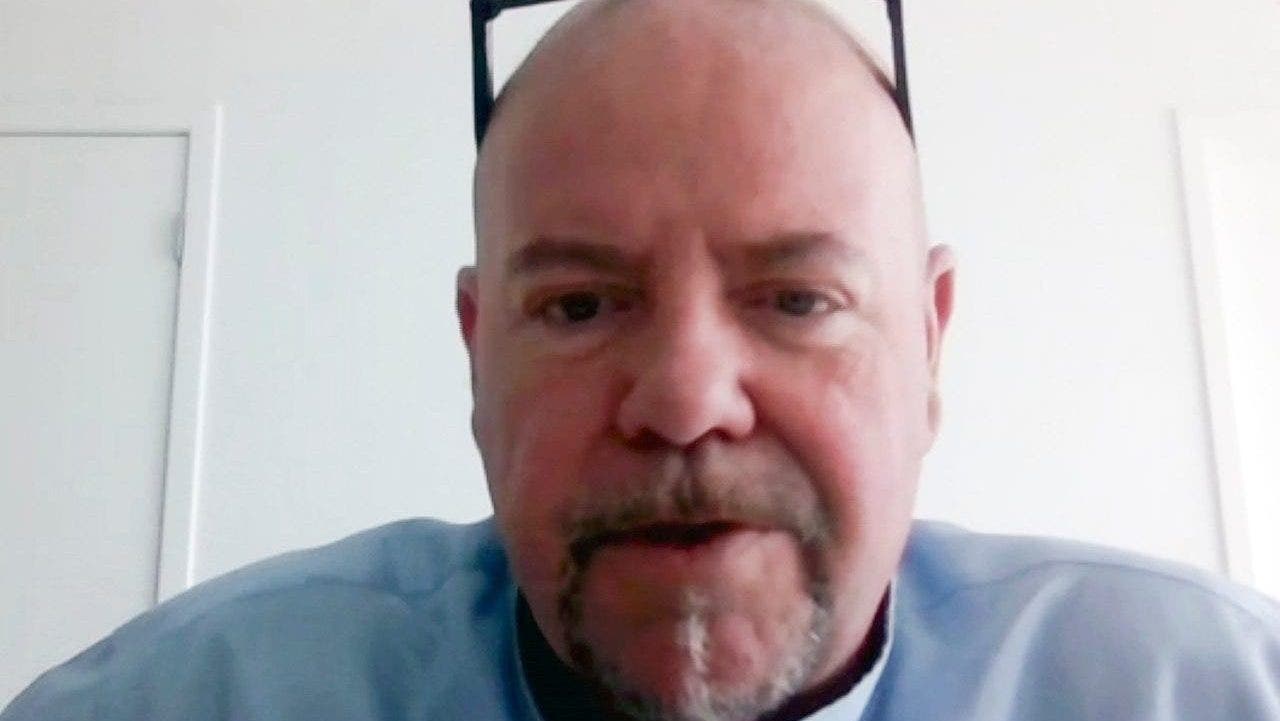Oregon
Oregon county sues oil companies over deadly 2021 heat wave

Oregon’s Multnomah County on Thursday sued 17 oil companies and related institutions, alleging pollution from fossil fuels contributed to a 2021 heat wave that killed dozens of Oregonians.
The county saw three of its hottest recorded days during the heat wave in 2021, with temperatures hitting 108, 112 and 116 degrees Fahrenheit. At least 69 residents died after a “heat dome” of hot ocean air trapped in the atmosphere contributed to intense heat.
Portland, which is in Multnomah County, saw a majority of the 69 overall deaths in the state attributed to the heat dome.
County officials cite a study by the group World Weather Attribution, which determined the extreme heat would have been “virtually impossible” without human-caused climate change.
The lawsuit names ExxonMobil, Shell, Chevron, BP, ConocoPhillips, Motiva, Occidental Petroleum, Space Age Fuel, Valero Energy, Total Specialties USA, Marathon Petroleum, Peabody Energy and Koch Industries, as well as two trade groups — the American Petroleum Institute (API) and the Western States Petroleum Association — along with consulting firm McKinsey & Company. It also names Anadarko Petroleum, which was acquired by Occidental in 2019.
“This lawsuit is about accountability and fairness, and I believe the people of Multnomah County deserve both. These businesses knew their products were unsafe and harmful, and they lied about it,” said Jessica Vega Pederson, chair of Multnomah County. “They have profited massively from their lies and left the rest of us to suffer the consequences and pay for the damages. We say enough is enough.”
County officials are seeking more than $50 billion in damages, including funds to prepare for future climate impacts, from the plaintiffs.
Thirty-five municipalities, seven states and the District of Columbia have previously sued the oil industry for the impacts of climate change, according to the Center for Climate Integrity.
The lawsuits have incorporated a number of different legal theories and approaches, including consumer protection, product liability and the Racketeer Influenced and Corrupt Organizations Act.
The Multnomah County suit specifically accuses the defendants of negligence and fraud and of creating a public nuisance.
“There are no new laws or novel theories being asserted here,” Jeffrey Simon, a partner at the firm of Simon Greenstone Panatier, PC, which the county has retained, said in a statement. “We contend that the Defendants broke long-standing ones, and we will prove it to a jury.”
Those named in the lawsuit have panned the effort.
“This ongoing, coordinated campaign to wage meritless lawsuits against our industry is nothing more than a distraction from important issues and an enormous waste of taxpayer resources,” Ryan Meyers, API senior vice president and general counsel, said in a statement to The Hill. “Climate policy is for Congress to debate and decide, not the court system.”
“Addressing climate change requires a collaborative, society-wide approach,” a Shell spokesperson told The Hill. “We do not believe the courtroom is the right venue to address climate change, but that smart policy from government and action from all sectors is the appropriate way to reach solutions and drive progress.”
“Addressing the challenge of global climate change requires a coordinated policy response. These lawsuits are counterproductive distractions from advancing international policy solutions,” Theodore Boutrous of Gibson, Dunn and Crutcher, counsel for Chevron, said in a statement. “The federal Constitution bars these novel, baseless claims that target one industry and group of companies engaged in lawful activity that provides tremendous benefits to society. ”
A ConocoPhillips spokesperson said the company does not comment on ongoing litigation.
The Hill has reached out to other defendants for comment.
— Updated at 12:22 p.m.
Copyright 2023 Nexstar Media Inc. All rights reserved. This material may not be published, broadcast, rewritten, or redistributed.

Oregon
Oregon provides funding boost to local meat processors to strengthen food supply

Oregon agricultural regulators are once again giving a boost to locally-owned slaughterhouses to build up local meat supply. On Wednesday, the Oregon Department of Agriculture announced a “substantial investment” of $8.2 million, intended to keep more meat local.
U.S. Department of Agriculture (USDA) meat inspectors and graders at a processing facility. Nov. 29,2018.
Preston Keres / U.S. Department of Agriculture
The funds will go to 14 Oregon-based meat processors that are either already inspected by the U.S. Department of Agriculture or will come under the state’s fledgling inspection program. That program came online in 2022 following a $9 million investment from the state Legislature after the USDA agreed to give the state Agriculture Department the ability to establish its own inspection program, so long as it met federal inspection requirements.
This time around, the state will distribute the money in the form of a grant for local processors to purchase new equipment and increase processing capacity.
Lisa Charpilloz Hanson, director of the Oregon Department of Agriculture, said the investment is a strategic move to address some of the limits processors and ranchers face.
“This is the second major investment the state is making in meat processing in Oregon. Our beef industry is a significant contributor to the national livestock supply chain, but much of the economic opportunity is lost because the processing is out of the state,” Charpilloz Hanson said in a statement.
Charpilloz Hanson also said the investment gives more options to ranchers and farmers when they’re looking for a processor, thereby strengthening the local food supply.
Before the Oregon state meat inspection program came online, ranchers and farmers relied on just 13 USDA inspected processors scattered across the state. A shortage of inspectors, especially at the peak of the pandemic, made it increasingly difficult for smaller to medium-sized ranchers to find a place for butchering livestock, said Casey Miller, owner of the Meating Place, a butcher shop and cafe in Hillsboro.
“There’s just not nearly enough inspected processors to really make the local food chain work. Right now, people are having to truck their animals all the way to Eastern Oregon or Idaho or southern Oregon or even farther to get them processed under inspection,” Miller said. “ODA’s program is really trying to simplify all those steps and get more meat producers under inspection within the state.”
Miller’s butcher shop was one of the first state inspected facilities. His business also just received $697,500 from the latest grants.He said the plan is to build a new slaughterhouse division to process animals for other meat producers under inspection. Which means that ranchers can then be able to sell it under their own label at restaurants, farmers markets or grocery stores.
“These funds are going a long way to taking the risk out of us jumping in to kind of fill this void,” Miller said.
ODA projects the state investment will lead to an additional 3.5 million pounds of locally sourced meat in communities throughout Oregon annually.
Oregon
Republicans from eastern, southern Oregon choose different styles in Senate primaries • Oregon Capital Chronicle

Family members of two ousted Republican senators will take their place in the Oregon Senate next year after primary elections that saw hardline conservatives win in southern Oregon and more pragmatic Republicans prevail in eastern Oregon.
No Democrats running for the Senate faced primary challenges this year, but Republicans had several open seats because of retirements and a law that barred most sitting GOP senators from running for reelection because they participated in a six-week walkout in 2023.
Sen. David Brock Smith, R-Port Orford, beat back claims that he wasn’t conservative enough to prevail in a four-way primary in the 1st Senate District, which includes the southern coast. Beatty Sen. Dennis Linthicum’s wife, Diane, and Cave Junction Sen. Art Robinson’s son Noah won their primaries in the adjacent 2nd and 28th districts in southern Oregon, and both are expected to continue their family members’ streaks of strident opposition to almost every bill in Salem.
Meanwhile, former House Republican Leader Mike McLane and Wallowa County rancher Todd Nash handily won primaries in sprawling districts in eastern Oregon. Both indicated they want to work with other legislators to pass laws and bring funding back to their districts, rather than starting from a place of opposing every bill.
Bryan Iverson, a political consultant from central Oregon who formerly served as head of the Senate Republicans’ campaign arm and worked on state Rep. Christine Goodwin’s campaign against Robinson, said it’s hard to extrapolate much from primaries where only a quarter of registered voters turned out, but that there seemed to be a different tone among Republican primary voters in southern Oregon who preferred “obstructionist” candidates to the more “mainstream Republicans” who dominate eastern Oregon.
“In the Republican primaries, at least in southern Oregon, you see victories by the same hard-right-leaning candidates and not the everyday Republicans,” he said.
The Republicans who won contested primaries on Tuesday night represent safe districts and are all but certain to serve in January in the Senate, where Democrats now have a four-seat majority. But Sen. Dick Anderson, R-Lincoln City, and Redmond school board member Michael Summers face tough general election races in the closely divided coastal 5th Senate District that Anderson now represents and the Democratic-leaning 27th Senate District in central Oregon that Summers is vying for, which is now represented by Sen Tim Knopp, R-Bend.
Senate Minority Leader Daniel Bonham of The Dalles said Republicans aren’t taking anything for granted in November.
“We clearly recognize, just going through numbers statewide, there are fewer Republicans than there are Democrats, period,” Bonham said. “Those districts certainly present challenges. I think our candidates are up for the challenge, but simultaneously, it’s going to take tremendous campaigns and spirited effort to get us across the finish line.”
1st District along the southern coast
Brock Smith beat back three challengers in a race rampant with false claims about his record. He sent cease-and-desist letters to supporters of opponent Todd Vaughn early in the campaign after they began sending mail and bought a billboard falsely accusing him of connections to the Chinese Communist Party.
Hours before the ballot return deadline, Vaughn’s campaign sued Brock Smith over mailers that described Vaughn as “too extreme, dishonest and has no experience,” which the lawsuit maintained was false because Vaughn “is honest, he is not extreme and he has experience.” Brock Smith’s campaign ads also described Vaughn as connected to a misinformation group and said he had been kicked out of the Douglas County Republican Central Committee.
Brock Smith won with nearly 57% of the vote, compared to about 29% for Vaughn, 9% for Paul Romero and 6% for Ashley Hicks. As of Wednesday afternoon, he said none of his opponents had conceded.
“I don’t think anyone has ever seen a campaign such as this, where this blatant misinformation continued to flow even though it was unfounded and disproven,” Brock Smith said.
He said he intends to continue his work in the Capitol, including trying to get more resources for preventing and fighting wildfires that have led to sky-high home insurance rates for Oregonians living near forests.
2nd District in southern Oregon
Noah Robinson, son of departing Sen. Art Robinson, R-Cave Junction, easily dispatched state Rep. Christine Goodwin, R-Canyonville, in the 2nd Senate District.

Noah Robinson is a familiar face around the Capitol – he has worked with his father for years, and during the past two legislative sessions as the elder Robinson’s health failed, Noah has consistently been by Art’s side on the Senate floor and in committee hearings.
Art Robinson has reliably been one of the most reliable “no” votes in the Senate, even on bills that otherwise have wide bipartisan support. Noah Robinson said he expects to follow in his father’s footsteps.
“There’s all this bipartisan stuff because of the deals, and voters don’t like that,” Robinson said. “So when you tell them that you’re against that, you’re gonna vote entirely from principle – obviously, you talk to the other side, try to make the bad bills less bad – but if the final product is something you don’t want, you vote against it, and that really appeals to the voters because that’s what they want.”
While Art Robinson split from the Republican caucus to form an Independent Caucus with Sen. Brian Boquist, a Dallas Republican who was registered with the Independent Party of Oregon for several years, Noah Robinson said he plans to stick with the Republican Caucus. Boquist was barred from running for reelection and is now the Republican nominee for state treasurer.
The 2nd Senate District includes Josephine and parts of Douglas and Jackson counties. Robinson’s strong support in Josephine County, which represented the bulk of ballots cast in the primary, pushed him to winning more than 60% of the vote districtwide.
Goodwin said she was “bummed” that she didn’t prevail, and that it was clear voters in Josephine County wanted a different brand of Republican. But she cautioned against the approach Robinson expects to take in Salem.
“The results in this election are clear,” she said. “Yet, Republicans must remember we cannot expect to succeed by refusing to engage and participate in the legislative process in Salem. My campaign team and I wish our Republican nominee the best and hope he can be an effective legislator.”
Iverson said Josephine County – or at least the Republicans in the area who showed up to vote – made it clear they wanted a different style of candidate.
“They want that brand of Republicans that are just obstructionist, basically,” Iverson said. “I think that they were pushing for that from the get-go, and if that’s obviously how it turned out. That’s not what Chris wanted to represent, she wanted to represent those people and have a different way of going about it than I think Noah would, but that’s not what the people wanted.”

28th District in southern Oregon
Dennis Linthicum of Beatty is now the Republican nominee for secretary of state, but his wife and chief of staff, Diane, plans to continue a seven-year tradition of Linthicums representing Klamath County in the state Senate.
Diane Linthicum, who beat Klamath County Commissioner Dave Henslee with nearly 60% of the vote, did not return a call Wednesday and has not responded to various requests for interviews throughout her campaign. Dennis Linthicum, likewise, has never responded to phone calls or emails from the Capital Chronicle.
Henslee, who will leave the commission in December, said he was disappointed but respects voters’ decision. He said he’s looking for a new way to serve his community, and that he doesn’t have high hopes that Linthicum will serve the district well.
“I think that the best predictor of the future is the past,” Henslee said. “She completely supports Dennis Linthicum’s voting record, and in my opinion, his voting record hasn’t benefited our district. I was running for people and for our district, and to try to move the needle and do some really positive things for District 28, and unfortunately, the voters didn’t see it the same way I did.”
29th District in northeast Oregon

Cattle rancher and Wallowa County Commissioner Todd Nash handily won a four-way primary to replace retiring Sen. Bill Hansell, R-Athena, in the 29th Senate District that covers most of northeast Oregon.
He captured about 53% of the vote, compared to about 25% for former Morrow County Commissioner Jim Doherty and 20% for Hermiston Mayor Dave Drotzmann. Eastern Oregon University student Andy Huwe came in a distant fourth with less than 2% of the vote.
Nash also might make Oregon history as the first senator to hail from Wallowa County – he isn’t aware of any others, but he’s willing to be proven wrong if any historians know of a former senator from Oregon’s most remote county.
He said he plans to meet with Republican senators, with county commissioners in the district and with natural resource groups including the Oregon Farm Bureau and the Oregon Cattlemen’s Association – which he previously led as president – to decide on legislation for next year.

30th District in eastern Oregon
Former House Republican Leader Mike McLane will head back to the Capitol after winning more than two-thirds of the vote in a three-way contest in the sprawling 30th Senate District. Retiring Sen. Lynn Findley, R-Vale, endorsed McLane, who was House GOP leader when Findley was first appointed as a state representative in 2018.
McLane left the state House in 2019 after eight years, six as leader of the Republican caucus, to serve as a circuit court judge in Crook and Jefferson counties. He returned to private practice as a lawyer in 2021.
McLane described himself as a pragmatist when it comes to legislation. As a lawmaker, he said he plans to participate and contribute to policy decisions in every way he can, and he plans to speak soon with both Bonham and Senate President Rob Wagner, D-Lake Oswego, about how he can help next year.
“Ultimately, the goal is to get something that works,” he said. “During my time as a judge, I saw in the courtroom the consequences of policy passed in Salem, and it just shaped in me a view that perfection is often the enemy of the good. I believe that voters in my district want their representatives in Salem to do their best and to work hard, but ultimately to advocate for their interests and for the betterment of our state.”
GET THE MORNING HEADLINES DELIVERED TO YOUR INBOX
Oregon
Progressive Oregon district attorney ousted by tough-on-crime challenger

A centrist district attorney candidate in Oregon has ousted his incumbent progressive opponent after running on a tough-on-crime platform.
Nathan Vasquez previously served as a deputy prosecutor to Multnomah County District Attorney Mike Schmidt. Vasquez won Tuesday’s nonpartisan primary election after returns showed him receiving more than 50% of the vote.
Vasquez, who was endorsed by several police groups, said Schmidt conceded the election during a Wednesday phone call. He was a prosecutor in the DA’s office for more than 20 years.
“I want to thank him for his professionalism and service to our community,” Vasquez said in a post on his campaign Facebook page. “I look forward to working with my colleagues in the DA’s office, with community partners, and with the public to help build a safer Multnomah County for all of us.”
SUSPECTED PORTLAND SERIAL KILLER HAD TRIED TO CHOKE POLICE K-9, WAS RELEASED FROM PRISON EARLY: REPORT
Nathan Vasquez, left, has ousted Multnomah County District Attorney Mike Schmidt in Oregon. (Vasquez for DA; Getty Images)
Schmidt came into office days before the police killing of George Floyd in Minnesota and the calls for changes to the criminal justice system that came amid racial justice protests in Portland and other cities nationwide. Other DAs ushered into office in liberal bastions like San Francisco and Seattle around the same time have since faced setbacks amid frustrations from the public over crime.
Generally, those district attorneys have supported finding alternatives to imprisonment and have refrained from prosecuting low-level crimes to reduce incarceration rates and address social inequities in the criminal justice system.
Critics have said such policies enable criminals and public safety risks.
PORTLAND SERIAL KILLER FEARS: VICTIMS’ PARENTS SPEAK OUT AFTER ‘CAREER CRIMINAL’ NAMED PERSON OF INTEREST

Portland, Ore., right, one of the most reliably blue cities in the U.S., has ousted its incumbent district attorney, Mike Schmidt, left, with a former Republican in Nathan Vasquez [not pictured]. (Getty Images)
Shortly after taking office, racial justice demonstrations gripped Portland as chaos erupted on the streets nearly every night for months. Schmidt announced that his office wouldn’t prosecute protesters unless they were arrested for deliberate property damage, theft, or the use or threat of force against another person. Interfering with a police officer, disorderly conduct and criminal trespass were cited as examples of cases his office would decline.
Vasquez announced the policy, as well as Schmidt’s support for a 2020 voter-approved measure that decriminalized the possession of small amounts of drugs. Earlier this year, state lawmakers rolled back the law and restored criminal penalties for so-called “personal use” possession amid one of the nation’s largest spikes in overdose fatalities.
Schmidt supported the move.

A person drops off their vote-by-mail ballot at a dropbox in Pioneer Square during primary voting in Portland, Ore. (AP Photo/Jenny Kane)
CLICK HERE TO GET THE FOX NEWS APP
In his message, Vasquez said he was “committed to ending open-air drug dealing and drug use while helping connect individuals to treatment, to rebuilding the broken relationships between the DA’s office and the community, and to ensuring that victims are the number one priority of my office.”
Fox News Digital has reached out to Schmidt’s campaign.
The Associated Press contributed to this report.
-

 Politics1 week ago
Politics1 week agoReports of Biden White House keeping 'sensitive' Hamas intel from Israel draws outrage
-

 World1 week ago
World1 week agoPro-Palestinian university students in the Netherlands uphold protest
-

 Politics1 week ago
Politics1 week agoDem newcomer aims for history with primary win over wealthy controversial congressman
-

 Politics1 week ago
Politics1 week agoSouthern border migrant encounters decrease slightly but gotaways still surge under Biden
-

 Politics1 week ago
Politics1 week agoWhite House walks diplomatic tightrope on Israel amid contradictory messaging: 'You can't have it both ways'
-

 World1 week ago
World1 week agoSlovakia PM Robert Fico in ‘very serious’ condition after being shot
-

 World1 week ago
World1 week agoCanadian Nobel-winning author Alice Munro dies aged 92
-

 News1 week ago
News1 week agoDespite state bans, abortions nationwide are up, driven by telehealth




















